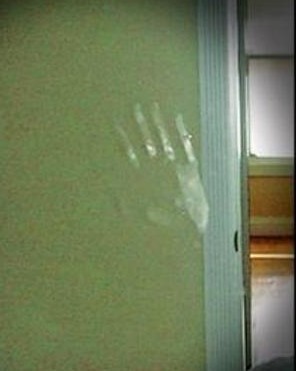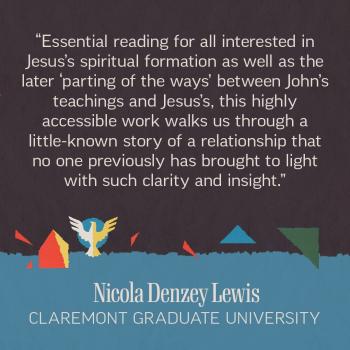I confess that when I was included in the book club discussing Janis Durham’s book The Hand on the Mirror: A True Story of Life Beyond Death, I was not entirely enthusiastic. I had blogged about books about near-death experiences by Eben Alexander and Mary Neal, and they left me skeptical.
I was delighted to find that Durham’s book is of a significantly different sort in at least certain respects. While it begins with personal biographical narrative and experience in a very similar way to the others I mentioned, by the end, the book has morphed into an appeal for more research. While there are moments when I don’t think Durham is as skeptical as I would try to be of certain claims, she is fully aware of phenomena like cold reading, and brings to the subject a journalistic rigor.
 There has already been discussion of the book by Sam Alexander and others around Patheos, and the book club site includes an excerpt and other such information. And so rather than summarize the book, let me jump right in to a discussion of the question of skepticism and the appropriate attitude towards experiences that can be lumped under the heading of the paranormal. Dunham makes the argument that scientists have, for the most part, veered off from appropriate skepticism into a pseudoskeptical scientism that is actually unscientific and unhelpful (pp.209-220).
There has already been discussion of the book by Sam Alexander and others around Patheos, and the book club site includes an excerpt and other such information. And so rather than summarize the book, let me jump right in to a discussion of the question of skepticism and the appropriate attitude towards experiences that can be lumped under the heading of the paranormal. Dunham makes the argument that scientists have, for the most part, veered off from appropriate skepticism into a pseudoskeptical scientism that is actually unscientific and unhelpful (pp.209-220).
I suspect that I may have been guilty of the same thing. Having been, I believe, too credulous in my view of the supernatural and paranormal in my earlier years, it is not only possible but likely that I have swung the pendulum too far in the other direction. I know of people who are religious skeptics or atheists, but who have had experiences of ghosts. They may reject the interpretation that they encountered disembodied souls. But they cannot deny that they experienced something.
One major emphasis in Dunham’s book is that a great many people have had such experiences, and the majority of them never share them because they expect to be viewed as insane, and think that their experiences are rare.
I don’t have first-hand access to the things that Durham experienced. Some seem to me to represent examples of the ways we as humans notice things and find significance in them, rather than something paranormal. When the name “Max” appeared on a boat in a photo next to her and her son, it seems to me too much to envisage any force in the universe either compelling them to that spot, or moving a boat with those letters on it into position behind them. But perhaps I am more resistant to determinism than I should be? In other cases, however, the experiences, if narrated accurately, and if they did not involve deception by others, are striking. What they mean, and what the explanation for them is, I do not know. But it seems to me that Dunham’s response it precisely right: we should acknowledge that many people have these sorts of experiences, and approach them with scientific rigor to understand and explain them, rather than dismissing them.
Perhaps the best way to conclude this post is to invite readers to tell their stories. Have you had an experience which you cannot explain? No need to accept any particular kind of explanation of the experience. But have you had such an experience? And if so, do you think that there ought to be more scientific research into such things?
















